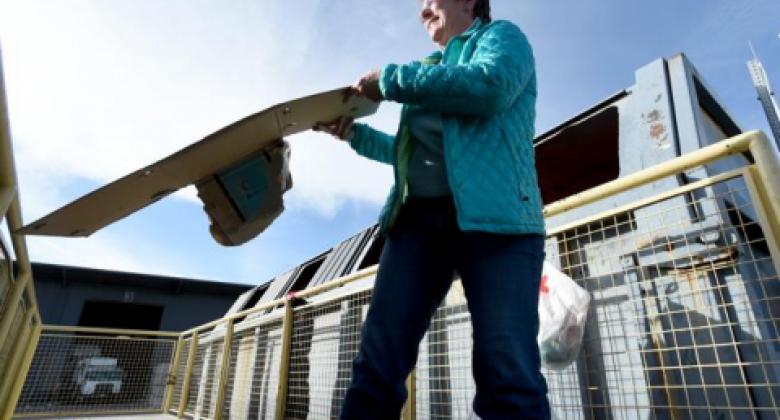Top cities in Colorado recycling rates are Loveland, Boulder, Louisville, Lafayette and Longmont

Boulder County cities among leaders in recycling rates
Top cities in Colorado recycling rates are Loveland, Boulder, Louisville, Lafayette and Longmont
Boulder County cities accounted for four of the top five recycling communities in the state of Colorado, according to a new study released by Eco-Cycle and the Colorado Public Interest Research Group.
The study, titled " The State of Recyling in Colorado," broke down residential recycling rates for 18 cities that kept data on recycling rates. According to the study, Loveland topped the list with a 61 percent residential recycling rate, while the next four cities — Boulder, Louisville, Lafayette and Longmont — were in Boulder County.
"That did not surprise me," Colorado Public Interest Research Group Director Danny Katz said. "I think the county of Boulder and the cities in Boulder County are prioritizing this. There is still room for improvement, but if you are living in that county, there are a lot more services."
The study indicated that a major factor in getting residents to recycle was providing curbside recycling included automatically with trash services, which all four of the Boulder County cities in the top five do.
"There are just too many places where people do not have those recycling bins right at their house," Katz said. "If you aren't making it easy, then of course you are going to put everything in the trash."
Kara Mertz, Boulder's environmental manager, agreed that ease of recycling was a major factor and pointed out that Boulder has been offering curbside recycling since 1976, which made it one of if not the earliest adopter in the state. "Everybody is so busy just trying to manage their daily lives, and if it's not right at your house or not convenient, only a small percentage will drive somewhere to drop off their recycling or compostables — even here in Boulder," she said. "It needs to be easily accessible and easy to understand."
Mertz hadn't had a chance to review the report Wednesday, but said she was a little surprised that Boulder was only second in the state, adding that she looked forward to seeing if the city could pick up any tips from Loveland.
"It would be interesting to see ways that we could improve," she said.
Mertz did say that Boulder faces some unique challenges because many of its residents are renters. She also said that much of Boulder's waste is generated by businesses rather than homes.
"What's interesting about the city of Boulder is that 60 percent of our waste is generated by the commercial and industrial center, because there are so many more jobs than residents," she said. "Even though our single-family recycling rate is quite high, because so much more of the community waste stream is commercial waste, that drives our overall community diversion down."
Mertz said that was part of the motivation behind Boulder passing the Universal Zero Waste Ordinance, which requires all businesses and property owners to provide recycling containers.
"We want to try and help multi-family complexes and businesses increase their recycling without creating inequities," she said. "If we require it universally for everyone, it would be accessible wherever you go."
Charles Kamenides, the sanitation manager for Longmont, said in addition to making recycling more accessible, cities are now trying to make sure people know just how much they can recycle.
"We realize outreach and education are important to inform our community what recycling opportunities are out there," he said.
To that end, Kamenides said the city will soon begin printing a publication guide called Waste Diverter that will be given to residents to let them know about new materials they can recycle and upcoming recycling events, such as chemical collection days or special holiday collections that will take items such as wrapping paper and old Christmas lights.
"We're continuing to expand the type of material we can keep out of landfills," he said.
But while many Boulder County communities are upping their recycling efforts, Katz said the overall state recycling numbers in the report were disappointing, with the statewide recycling rate coming in at 12 percent. The report says the national average is 34 percent.
"I hope people are as startled by that as I am," Katz said. "We have a green reputation here and to see such poor recycling numbers ... Hopefully this inspires our community to keep this out of the landfills and recycled in a way that is much better for our environment and our economy."
Mitchell Byars: 303-473-1329, byarsm@dailycamera.com or twitter.com/mitchellbyars

